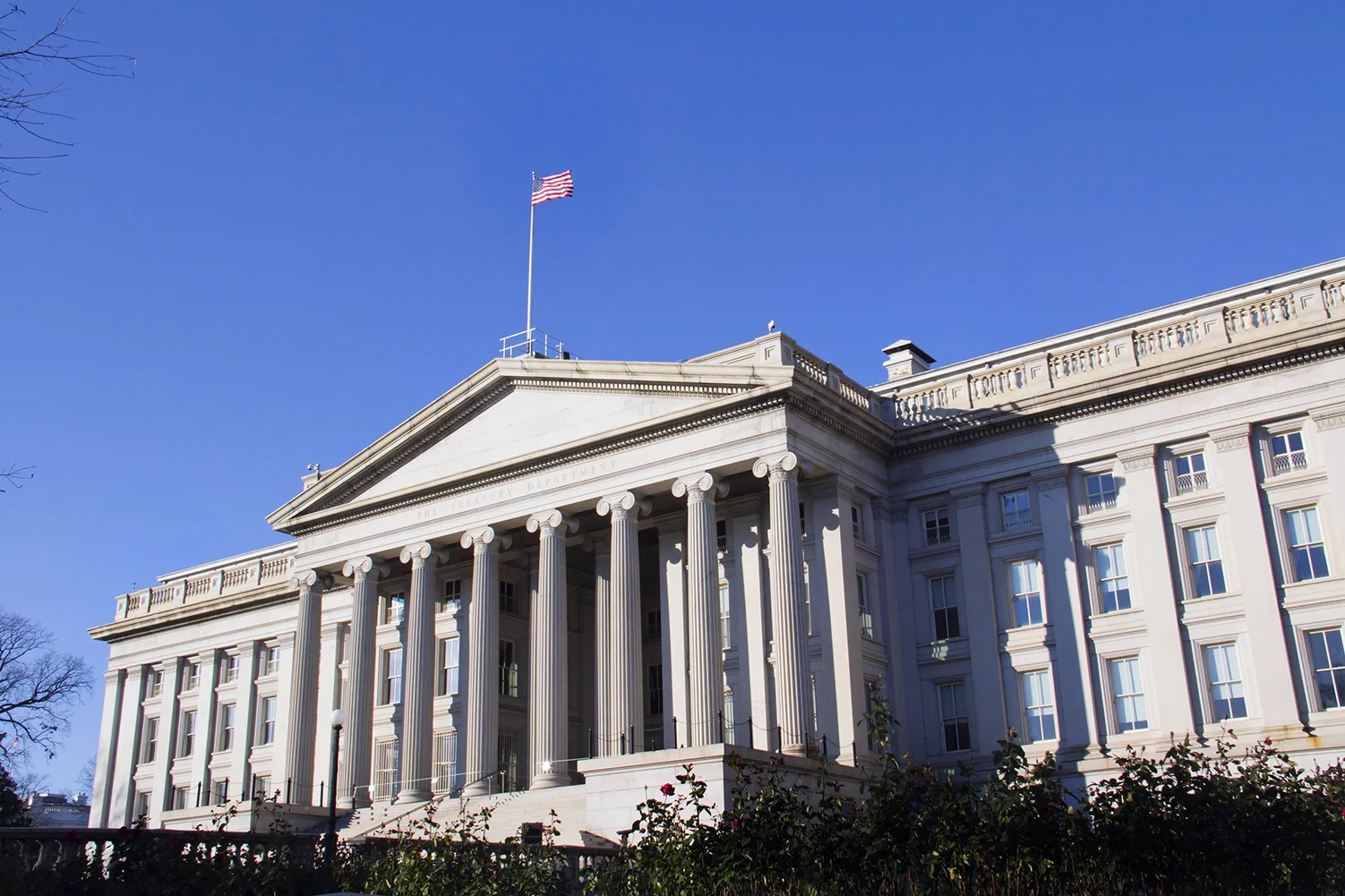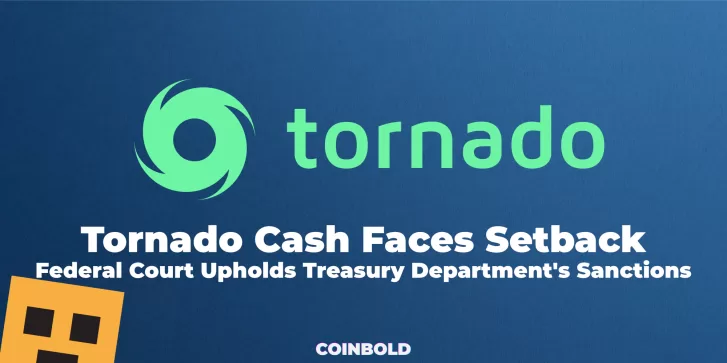Delve into the details of the federal court’s ruling that supports the Treasury Department’s ability to apply sanctions on Tornado Cash, a prominent cryptocurrency mixer. Explore the case presented by Tornado Cash users and the court’s perspective on the matter, shedding light on the implications for both parties.
Federal Court Ruling Strengthens Treasury’s Authority
In a significant turn of events, a recent federal court ruling has sided with the Treasury Department, granting it the authority to enforce sanctions on the well-known cryptocurrency mixer, Tornado Cash. The ruling, issued by U.S. District Judge Robert Pitman, marks a pivotal moment in the ongoing legal battle surrounding the application of sanctions to digital assets.

Support for Treasury’s Position
Judge Pitman’s summary judgment aligns with the stance of the Treasury’s Office of Foreign Assets Control (OFAC), affirming their right to include Tornado Cash under the umbrella of sanctions regulations. This ruling sets a precedent that establishes the Treasury Department’s power to reference and regulate Tornado Cash’s activities within the context of financial sanctions.

Petition Filed by Tornado Cash Users
The legal proceedings were ignited by a petition filed by six users of Tornado Cash—Joseph Van Loon, Tyler Almeida, Alexander Fisher, Preston Van Loon, Kevin Vitale, and Nate Welch. Seeking a summary judgment, these individuals challenged the Treasury’s actions and its implications on their constitutional rights.
A Clash of Perspectives
Supporters of Tornado Cash rallied behind the argument that the government’s actions encroached upon their First Amendment rights. They contended that their use of the mixer was not solely for financial gain but also for contributing to significant political and social causes. Their plea to the court aimed to secure a judgment based on presented evidence and legal reasoning, bypassing a full trial process.
Read more:
Court’s Verdict: Insufficient Evidence of First Amendment Implications
In a surprising twist, Judge Pitman arrived at a conclusion that diverged from the plaintiffs’ perspective. The court determined that the plaintiffs failed to provide substantial evidence showcasing any direct infringements on their First Amendment rights resulting from the Treasury’s actions. This verdict underscores the challenges of navigating the intersection of cryptocurrency, technology, and constitutional rights.
Tornado Cash: Decentralized Innovation or Entity?
The six individuals who employed Tornado Cash presented differing viewpoints on its nature. While plaintiffs argued that Tornado Cash was a decentralized, open-source software project operating on Ethereum’s blockchain, the judge’s assessment identified it as an association within the context of OFAC regulations. This disparity in perception further emphasizes the complexity of defining crypto-related entities under existing legal frameworks.
Continued Legal Battle and Implications
Paul Grewal, the chief officer of Coinbase and a supporter of the lawsuit, expressed unwavering confidence in the plaintiffs’ challenge against OFAC’s actions. He reiterated that the journey to secure rights is characterized by ups and downs. Grewal emphasized the need for Fifth Circuit review to bring clarity to the intricate issues at hand.
Navigating the Uncharted Terrain
The federal court’s ruling in favor of the Treasury Department marks a significant milestone in the evolving landscape of cryptocurrency regulations. As the crypto community grapples with the intersection of technological innovation and legal frameworks, Tornado Cash’s case sheds light on the complexities of establishing legal precedent in this nascent field. The ruling’s repercussions echo beyond the Tornado Cash case, serving as a reminder of the intricate path that must be navigated to secure digital rights and define the boundaries of emerging entities in the crypto realm.


